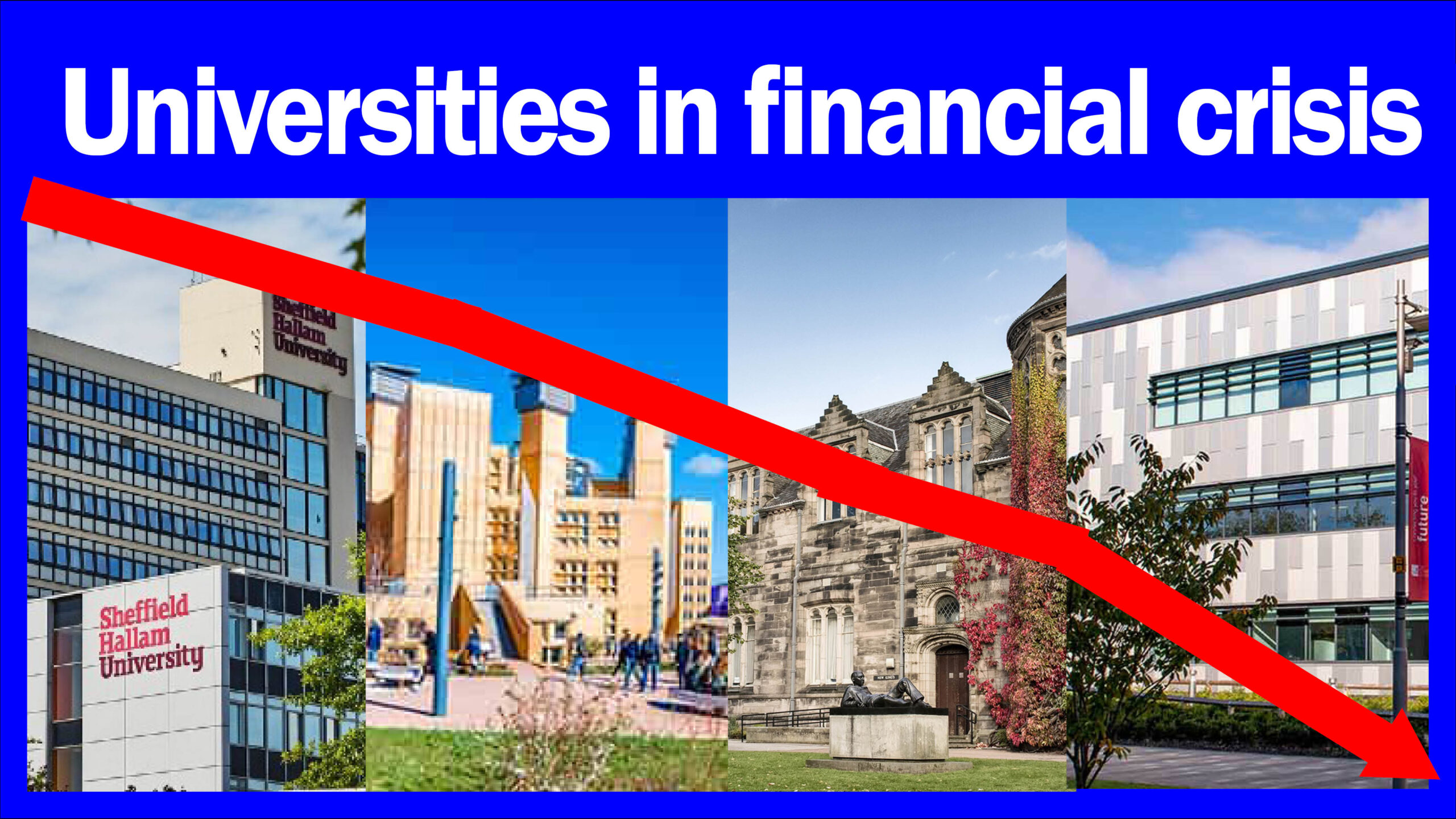By Harry Mottram: Concerns have been raised by Bridgwater based ICSM about the possibility that several universities could go bust this year leaving their suppliers, students and staff high and dry. Ian Carrotte of ICSM – the business membership group dedicated to fighting bad debts and late payers with many members involved in supplying universities and colleges of further education – said the sector was sleepwalking into insolvency with one in four establishments in peril according to reports.
Writing for ITV News, journalist Shebab Khan said the higher education sector was in an ‘existential crisis’ with a quarter making huge losses. He reported before Christmas 2023 that: “Multiple universities could be forced to close if no action is taken, as one in four in England and Northern Ireland are currently making a loss, ITV News can reveal. Data seen by ITV News paints a bleak picture of the higher education sector, which experts have described as being in an ‘existential crisis’. One-quarter of universities are currently making a loss and total losses over the entire sector sits at a staggering £2 billion, a huge increase from the £200 million from the year before.”
Ian Carrotte said: “The reasons are many, but they essentially are due to a failure to follow the basics of any business: the bursars are not able to balance the books. Student numbers have fallen in some colleges, overheads have risen with energy bills rising, fees have remained static, money from national and local governments have been curtailed and they are not immune from the Cost of Living Crisis. With many universities having annual turn-overs of more than £100m and some close to a half a billion these are in reality massive businesses and yet they are not always run like one.”
He noted that many vice-chancellors had packages of around a quarter of a million pounds a year and yet presided over colleges running up huge debts while many of the senior management earned six figure salaries – which he felt was ‘out of kilter’ with reality.
Writing for the insolvency and corporate restructuring London firm Buchler Phillips James Bryan noted this week: “Brexit cut the number of EU students in half, as well as removing access to £800m a year in grants. Lower status universities face a significant drop in applications, resulting in job cuts and strikes, while some of the more prestigious are overrecruiting, increasing class sizes and stretching accommodation. Before the year is out, it is highly likely that some universities will break their banking covenants. Several are already in dire need of restructuring their borrowings to put them on a more sustainable footing. Sector regulators and the government have already indicated ‘no bail out’; any support will be limited to temporary cash flow issues, not tackling a more fundamental lack of demand.”
The Daily Telegraph reported this month that Coventry University has found a £85m black hole in its budget and that Sheffield Hallam University has invited its 1,700 academic staff members to apply for voluntary redundancy. The newspaper’s Melissa Lawford reported: “The University of Aberdeen is consulting on axing single honour degrees in modern languages because the income from these courses do not cover the staffing costs. In November, the University of Staffordshire announced redundancies that mean more than one in 20 staff will lose their jobs.”
Ian Carrotte said that without Government bail-outs there were few options. He said: “They need to slash overheads such as closing parts of their campus and courses, making staff cuts, recruiting more students – especially from overseas as they pay more in fees – or closing down or merging with other institutions. Nobody is going to come to their rescue. It does ask the question that the drive to get more students to go to university was advisable rather than championing further education colleges with their vocational courses which can have better outcomes in terms of jobs. My message as always to suppliers who provide IT services and computer systems, printed brochures and such things as building maintenance is to stick to your terms of credit and at the first sign of late or non payments to put them on stop.”
+++++++++++++++++++++++++++++
ICSM CREDIT
For information on ICSM visit www.icsmcredit.com or call 0844 854 1850.
ICSM, The Exchange, Express Park, Bristol Road, Bridgwater, Somerset TA6 4RR. Tel: 0844 854 1850. www.icsmcredit.com. Ian.carrotte@icsmcredit.com

